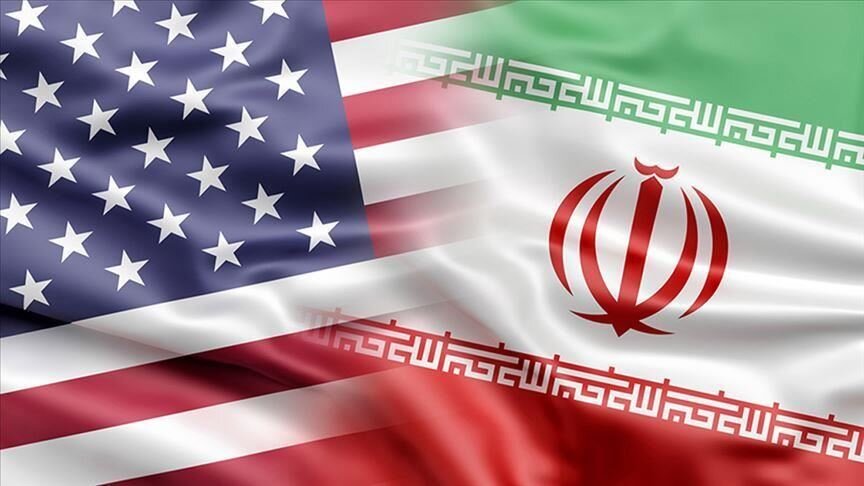The world powers and Iran-US talks

TEHRAN – International media assessments of Iran–U.S. negotiations before the talks on Saturday, April 11, essentially suggested that a military confrontation between the two countries was inevitable.
Most domestic analytical sessions on the Tehran–Washington relationship echoed these views, and most Iranian analysts also believed it was highly unlikely that the two nations could avoid conflict or escalation. However, it is still too early to judge, and we must wait to see how negotiations progress.
That said, I personally have not and do not share this perspective. My analysis, at least thus far, differs. I believe the risk of military conflict between Iran and the United States—or even Iran and Israel—is not so high. To explain why I do not share the belief of an imminent confrontation, various factors must be considered. After examining these factors, I conclude that a military conflict between the two countries is somehow unlikely.
One key reason is the internal developments within the United States. Donald Trump's character—as both the President and a unique political figure—plays a crucial role in U.S. policymaking. What he wants and pursues is extremely important.
I believe Trump does not ultimately wish to engage in military conflict anywhere, particularly with Iran. When he says he does not want the U.S. to head toward war, he is truthful, despite his reputation for dishonesty. While Trump is generally not considered an honest politician and often deliberately misleads, in this specific matter regarding Iran, he is being sincere. Many figures in his administration, such as Michael Waltz—a former U.S. military officer now serving as National Security Advisor—do favor military confrontation with Iran, influenced by the Israeli lobby. They push for conflict and continue to pressure Washington.
Despite all of this, Trump, just as he resisted efforts by Pompeo and Bolton during his first term to escalate tensions with Iran (eventually dismissing both), is unlikely to succumb to current pressures for military action. Steve Witkoff, in an essential interview with Tucker Carlson, explained Trump's decision-making style, noting that Trump doesn't read reports or listen to briefings but responds best to direct conversations that outline his desires and what he's willing to pay or not pay to achieve them.
Witkoff, who has worked with Trump for over three decades and is now a trusted figure in his administration, highlighted that Trump seeks peace and stability in West Asia in exchange for preventing Iran from acquiring nuclear weapons. As long as that goal is attainable, there is no indication that Trump intends to push toward conflict.
Another factor to consider is Trump’s pragmatic nature. He is far from foolish; his estimated $4 billion fortune didn't come easily. He is aware of his position and the challenges he faces. Trump is already involved in several economic and political conflicts with no success—Europe, China, Russia—and these have caused inflation and stock market declines in the U.S. Adding a costly, long-term war with Iran would be disastrous. Past wars in Iraq and Afghanistan cost trillions—Afghanistan alone exceeded $2.6 trillion. Trump, whose decisions are typically economically driven, is unlikely to start a new war that could further harm the U.S. economy and public perception.
Some argue that war benefits the U.S. arms industry, but in reality, American weapons are sold even without war. For example, Saudi Arabia and other regional countries remain major buyers.
In summary, economic considerations, Trump’s decision-making model, and history suggest that he is not inclined toward war.
Regional Actors’ Role
It is also essential to consider the role of regional players. During the JCPOA negotiations, many Persian Gulf countries opposed it. But today, none of them want war. Even the UAE, Israel’s closest ally in the region, does not seek military escalation. Contrary to some perceptions, the U.S. and Trump are responsive to these countries' desires.
Iran’s Position
Iran’s stance also helps reduce the risk of conflict. As General Bagheri, Chief of Staff of Iran’s Armed Forces, stated—conveying the Supreme Leader’s position—Iran does not desire war or military escalation.
Europe, Russia, and China’s Roles
Despite being displeased with Iran’s stance on Ukraine, the European Union also does not appear interested in starting a war in the region.
Russia, initially hoping to use Iran and Ukraine as bargaining chips with the U.S., lost that leverage when Trump announced his intent for direct talks with Iran. Moscow is now sidelined, so for the time being, it is an inactive player.
China’s stance is less clear. Historically, China helped Iran with nuclear technology and remains a major provider of modern tech to Iran. While the Chinese role is significant, their current policy is ambiguous.
Global supply chains
Beyond all these factors, the global supply chain may be the most critical deterrent to war. West Asia is key in raw materials, energy, transportation, and markets. Stability in the region is in the shared interest of the U.S., EU, China, and regional countries. This mutual interest in regional security is a powerful barrier against military escalation.
Spoilers
Globally, there is little appetite for a new conflict, with Israel and Netanyahu being the primary proponents of confrontation. However, they now realize that the U.S. and other global and regional powers do not support military escalation.
Instead, Israel is pursuing two main strategies:
1. Strengthening the U.S. military presence in Diego Garcia under the “peace under might” doctrine to maintain pressure on Iran.
2. Undermining the Muscat negotiations through political and media efforts, not by preventing talks outright (as they did during Trump’s first term), but by disrupting them and steering them toward failure.
Internally, there are also groups in Iran that, while not advocating direct war, may seek to trigger conflict through proxies to profit economically. Thus, protecting the negotiation process is essential.
The risk of military conflict appears to be decreasing overall. However, it is important to clarify that this applies mainly to conventional war. Other forms of conflict—such as assassinations, instability, or cyber warfare—remain possible and cannot be ruled out.
Leave a Comment